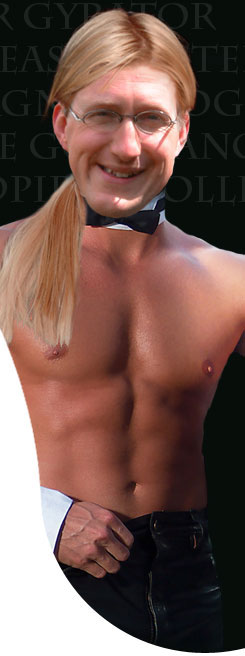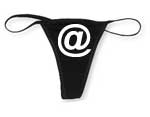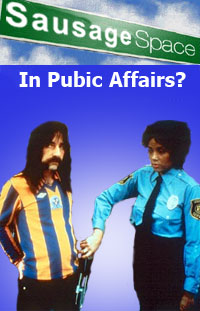Why do people get paid good money for talking rubbish? I do it for free, most days of the week, though I’m beginning to think I should turn this into a lucrative money making operation. It’s remarkable the number of subjects I can talk about with little or no authority. I can write a nice line of nonsense about Icelandic fertility myths of the eighth century or even on the mating habits of Egyptian sand lizards. Give me a few minutes and I could come up with dozens of subjects I know nothing about.
In this respect, I think I need to take a leaf from Rod Liddle’s book. Whenever I open a paper, I seem to find myself reading something by Liddle. The man has opinions on everything: football, television, politics, literature, and now comedy. The man is a journalistic miracle. I’d love to know how he manages to type when he spends most of his time forming syllables with his arse cheeks.
Over my breakfast, yesterday morning, I endured Liddle's article on Woody Allen in The Sunday Times. Never have slightly moist Weetabix been chewed so fiercely. The title of his piece was: ‘Heard the one about the comedy film-maker who just wasn’t funny any more?’ It opened with this fine example of journalism.
A few weeks ago, bored one evening and with a shortage of Hitler porn to watch on the history channels, I dug out Mel Brooks’s 1968 “classic”, The Producers, and watched that instead – anything for a late-night Adolf-fix. I seemed to remember it contained only one decent laugh. But I had quite forgotten the full panoply of sheer awfulness – the painfully witless jokes telegraphed five minutes in advance; the excruciating, ham-fisted acting; the histrionic gurning and mugging of Brooks himself. And, dear Lord, Gene Wilder. It’s by no means the worst film Brooks has made: check out Spaceballs or History of the World for an evening of perfect mirthlessness. The Producers is one of his best, in fact. Imagine that.
I'll try to ignore the self-satisfied tone of the article (though the 'imagine that' makes me spit blood) in order to point out that the man clearly knows his material. Mel Brooks doesn’t appear in The Producers, though he does provide a voice for a singer in 'Springtime for Hitler'. Spaceballs is bad but the dire Robin Hood: Men in Tights is worse. Gene Wilder is rarely to blame for Brook’s failings. He tends to be the perfect foil who can make crazy seem plausible. And to dismiss the director of Blazing Saddles and Young Frankenstein strikes me as a bit much when it’s coming from the guy whose greatest comedy achievement is to reduce Radio 4's 'Today' show to a national joke. It’s also to misrepresent Brooks’ other contributions to filmmaking, producing David Lynch’s Elephant Man among many others. Nor is it mentioned that a young Woody Allen looked up to Brooks when they worked together writing for Sid Caesar in the 1960s. And I’m not even beginning to explore the problem of comparing Allen to Brooks, given that the two men have spent the last thirty years living at the opposite ends of the comedy spectrum.
The problem with critics is they usually compare quite meagrely to the people they decide to criticise. Roger Ebert is a fine critic but, as a screenwriter, he’s best known as the writer of a couple of Russ Myer movies. It’s why the best critics usually have an understanding of the subject they write about. One of the reasons why Martin Amis is such an excellent literary critic is that he understands the writing process from the inside.
Which is what annoyed me the most about Liddle. The most cruel (and least intelligent) accusation you make to a comedian is that they’re no longer funny. It a crass misunderstanding of comedy. Somebody who has tried to write comedy would know this. Paul Kaye made his name playing Dennis Pennis. He’d stand at the edge of red carpets and pull stunts on celebrities. He once shouted to Steve Martin, ‘Hey Steve - how come you're not funny anymore?’ He’s since gone on the record as saying he thought it a step too far and regretted it. I still remember the look of pain on Martin’s face.
The point of Liddle’s argument is to portray Brooks’ bawdy humour as the antithesis to Allen’s wit. In a roundabout way, Liddle is trying to do Allen a favour. ‘Humour need not be disposable, crass or cheap,’ he writes at the end of the article. ‘It need not be Mel Brooks.’ Only Allen doesn’t need Liddle’s backhanded compliments. And Brooks doesn't deserve Liddle's criticism. Nor do we need another lazy argument based around Brook’s poorest efforts and Allen’s later career reduced to the same old stereotypes employed by the worst critics.
‘His films, with one exception, have made little headway at the box office’.
When have Allen’s films ever done well at the box office? Outside London, it’s hard if not impossible to find a cinema showing them. I own most of his later films but only having had to import them from America on DVD. Hollywood Ending, The Curse of the Jade Scorpion, Small Time Crooks may be some of Allen’s minor films but they’re strong examples of the type and far superior to the average Hollywood comedy. And that’s not even to mention Deconstructing Harry, which is one of Allen’s bravest and funniest films.
But I guess none of this matters to Liddle. It’s the slow season and he’s probably paid handsomely by the word to fill pages left empty while the rest of the staff are on holiday. I also suppose they hope that nobody is actually reading this rubbish. I know I wish I hadn’t. It put me in a bad mood all Sunday.

















